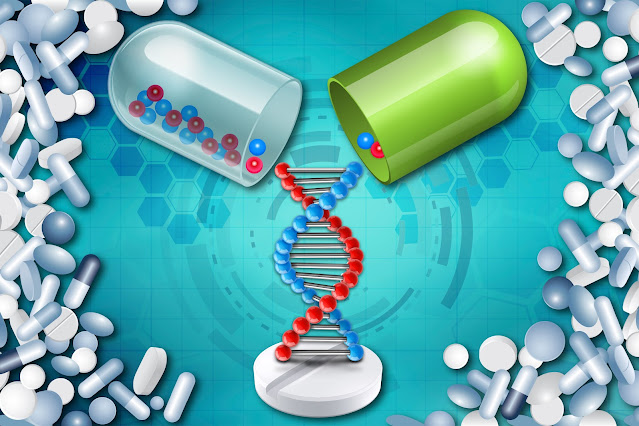Precision Medicine: Revolutionizing Healthcare through Personalized Treatments
 |
| Precision medicine |
Precision medicine is a groundbreaking approach in healthcare that tailors medical treatments to the unique characteristics of each individual. It represents a significant shift from the traditional one-size-fits-all approach to a more targeted and personalized approach. By taking into account an individual's genetic makeup, lifestyle, environment, and other relevant factors, precision medicine aims to provide more effective and precise treatments, resulting in improved patient outcomes.
At the heart of
precision medicine is the ability to analyze vast amounts of data, including
genomic information, to identify patterns and correlations that can guide
treatment decisions. Advances in technology, such as high-throughput DNA
sequencing and bioinformatics, have made it possible to rapidly and
cost-effectively sequence an individual's entire genome. This wealth of genetic
information allows healthcare professionals to better understand a person's
susceptibility to certain diseases, predict their response to specific
medications, and identify potential risks or adverse reactions.
One of the key
advantages of precision medicine is its ability to detect diseases at an early
stage, even before symptoms manifest. By analyzing genetic markers and
biomarkers, healthcare providers can identify individuals who are at a higher
risk of developing certain conditions. This early detection enables proactive
interventions and preventive measures to mitigate the progression of the
disease or even prevent it altogether.
Precision
Medicine has shown great promise in the field of
cancer treatment. Traditionally, cancer treatments involved a combination of
surgery, radiation, and chemotherapy, which often caused severe side effects
and yielded mixed results. However, with precision medicine, oncologists can
analyze the genetic profile of a tumor and determine the most effective
treatment options. This approach allows for targeted therapies that
specifically attack the molecular drivers of the tumor, leading to higher
response rates and improved patient survival rates.
In addition to cancer,
precision medicine holds immense potential for a wide range of diseases,
including cardiovascular disorders, neurological conditions, and autoimmune
diseases. By gaining a deeper understanding of the genetic and molecular
underpinnings of these diseases, researchers and clinicians can develop
personalized treatment strategies that address the root causes rather than just
managing symptoms. This shift towards individualized care has the potential to
transform the healthcare landscape, providing patients with more effective
treatments and reducing the burden on healthcare systems.
However, the widespread
adoption of Precision
Medicine comes with its challenges. Privacy concerns, ethical
considerations, and the need for robust data security measures are paramount to
ensure the responsible and secure use of patient data. Additionally, there is a
need for increased collaboration among researchers, healthcare providers, and
policymakers to overcome regulatory and reimbursement barriers and make
precision medicine accessible to all individuals.
Precision medicine
represents a paradigm shift in healthcare, offering personalized and targeted
treatments that have the potential to revolutionize patient care. By harnessing
the power of genomics and advanced technologies, precision medicine holds the
key to unlocking a future where diseases are detected early, treatments are
tailored to individuals, and patient outcomes are significantly improved. With
continued advancements and collaborative efforts, precision medicine will play
a pivotal role in shaping the future of healthcare, paving the way for a
healthier and more personalized approach to medicine.



Comments
Post a Comment